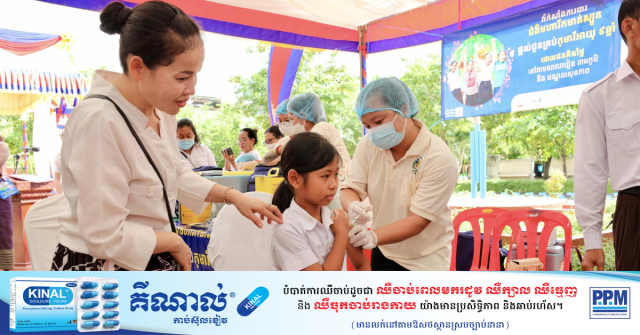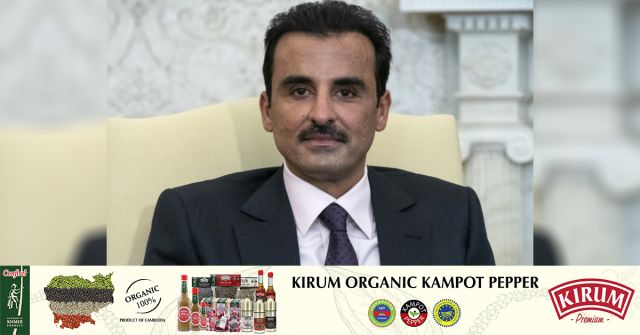Cambodia Launches Life-saving HPV Vaccine into Routine Immunization Schedule to Prevent Cervical Cancer

- By Xinhua News Agency
- October 6, 2023 11:19 AM
PHNOM PENH — Cambodia on Thursday announced the introduction of the one-dose human papillomavirus (HPV) vaccine for nine-year-old girls into the national immunization schedule to support the prevention of cervical cancer.
Speaking at the launching event in Phnom Penh, Health Minister Chheang Ra said from Oct. 5 onwards, the Ministry of Health, supported by the global vaccine alliance Gavi, the World Health Organization (WHO) and the United Nations Children's Fund (UNICEF), among others, will offer HPV vaccines free of charge to all nine-year-old girls nationwide through regular school and community vaccination outreach sessions and year-round services at health centers.
"Cervical cancer is a public health priority in Cambodia," he said. "We are accelerating our joint efforts to eliminate this deadly disease by introducing the HPV vaccine into the Cambodian National Immunization Program."
"We will ensure all nine-year-old girls can receive one dose of the HPV vaccine free of charge starting from today and plan to provide HPV vaccines to girls above nine years old through a campaign in 2025," he added.
Often referred to as the "silent killer" and almost entirely preventable, cervical cancer is the fourth most common cancer and cause of cancer-related deaths among women globally, with the majority of cases occurring in lower- and middle-income countries, according to a joint statement released after the event.
"In Cambodia, it is the second most common cancer and is the third deadliest cancer among women of all ages, with an estimated 1,135 new cases and 643 deaths every year," the statement said.
"The HPV vaccine protects women from cervical cancer by preventing infection with the human papillomavirus. Recent evidence from WHO shows that one-dose HPV vaccines are 80-90 percent effective in decreasing HPV infection and preventing cervical cancer," it added.
According to the statement, Cambodia now joins 136 countries and regions around the world in introducing the HPV vaccine into the national immunization program.
Will Parks, UNICEF representative in Cambodia, stressed the importance of equity in the introduction of the HPV vaccine in Cambodia and the importance of quality sexual and reproductive health services for girls as part of primary health care.
"Ensuring all eligible girls, especially those living in high risk, urban poor, remote and rural communities, and ethnic and migrant populations, have access to the HPV vaccine and other essential services for their sexual and reproductive health is critical for safeguarding the well-being of every girl in Cambodia," he said.
"UNICEF is committed to supporting the Government's efforts to eliminate cervical cancer and improve health for all," he added.
The HPV vaccine is one of the Cambodian government's primary prevention strategies towards cervical cancer elimination, said Pascal Ringwald, WHO acting representative in Cambodia.
"The vaccine is safe and the most effective preventive measure available against cervical cancer," he said. "Achieving more than 80 percent coverage of one-dose HPV vaccines will benefit more people, families, and communities in decades to come."
Thabani Maphosa, managing director of country programs delivery at Gavi, said the move by the Cambodian government marked an important step in the battle against cervical cancer and its devastating impacts in the Southeast Asian country.
"The wait for the HPV vaccine is over, affording generations of adolescent girls across the country the opportunity to be protected against a deadly yet preventable disease," he said. "Collective and urgent action towards expanding access to all communities will be essential to make sure no girl is left behind."















